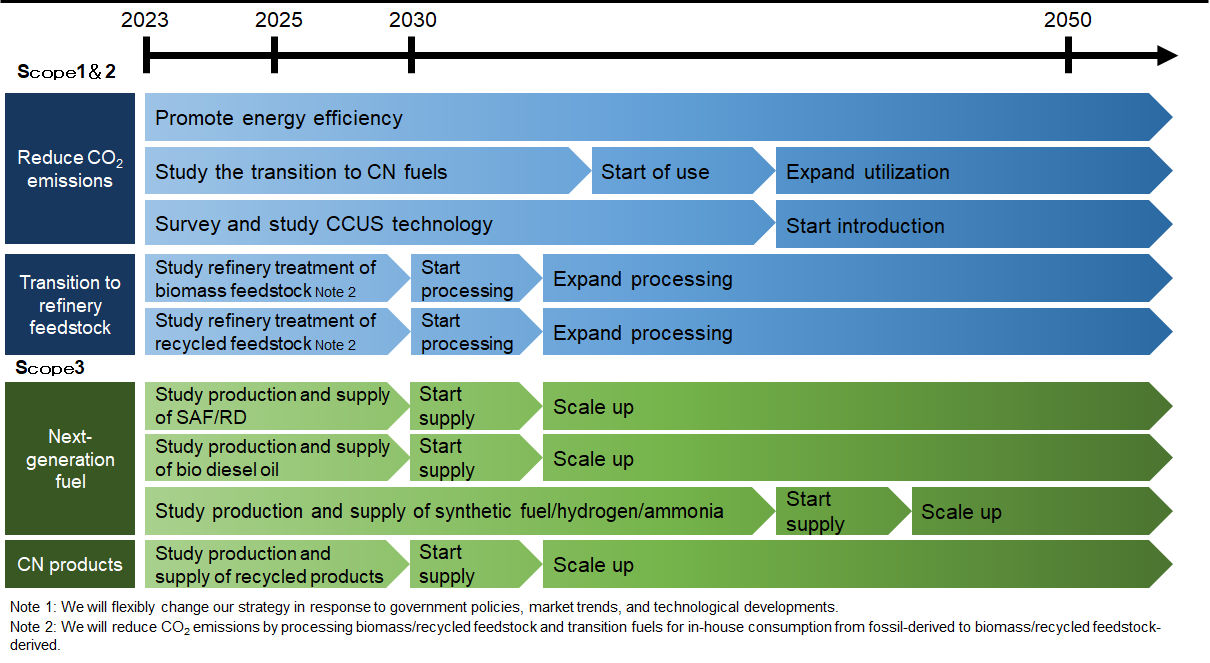Transition Strategy Towards Achieving a Carbon Neutral Society by 2050
Under the corporate philosophy of "Like the Beaming Sun," we, as an integrated energy company, strive to harmonize with the global environment and provide safety and security to contribute to the creation of an enriched society. Additionally, we aim to promote harmony with all members of society through our business activities and to create new values through an aggressive and bold approach, striving to build a company with sustainable growth potential.
Our group has formulated the "Transition Strategy Towards Achieving a Carbon Neutral (CN) Society by 2050," based on risks and opportunities identified through scenario analysis as recommended by the Task Force on Climate-related Financial Disclosures (TCFD).
Website link: Information regarding the TCFD
GHG Emission Reduction Targets for Our Group(Scope1&2)
To achieve stable supply, economic efficiency, and environmental compatibility while ensuring energy security, we aim to reduce GHG emissions (Scope 1&2) from our business activities by 30% compared to the FY2013 level by FY2030.
Furthermore, by FY2050, we aim to achieve net-zero GHG emissions from our operations and contribute to the realization of a CN society by reducing the carbon footprint of the products we supply.
Note 1: GHG emissions include greenhouse gases other than CO2.
Note 2: The targets apply to Taiyo Oil Co., Ltd.
Initiatives for Decarbonization
- In addition to promoting energy efficiency at our manufacturing facilities, we are participating in the "Council for the Introduction and Utilization of Fuel Ammonia through the Namikata Terminal as a Hub" to advance the transition to CN fuels in manufacturing facilities and in-house power generation.
- For the supply of next-generation fuels and CN products, we are investigating the production of pyrolysis oil from biomass and waste plastics as feedstock and its use as a crude oil substitute in refineries.
- Currently, most waste plastics are incinerated, releasing large amounts of CO2 into the atmosphere. We are exploring chemical recycling to revert waste plastics into raw materials for plastic.
- Next-generation fuels such as SAF (Sustainable Aviation Fuel) and RD (Renewable Diesel) are expected to significantly reduce CO2 emissions by using them as alternatives for aircraft, trucks, buses, ships, and other vehicles, as these fuels use plants that absorb CO2 from the atmosphere as raw materials. Okinawa Operations is investigating the production and supply of SAF and RD using ethanol as raw material.

